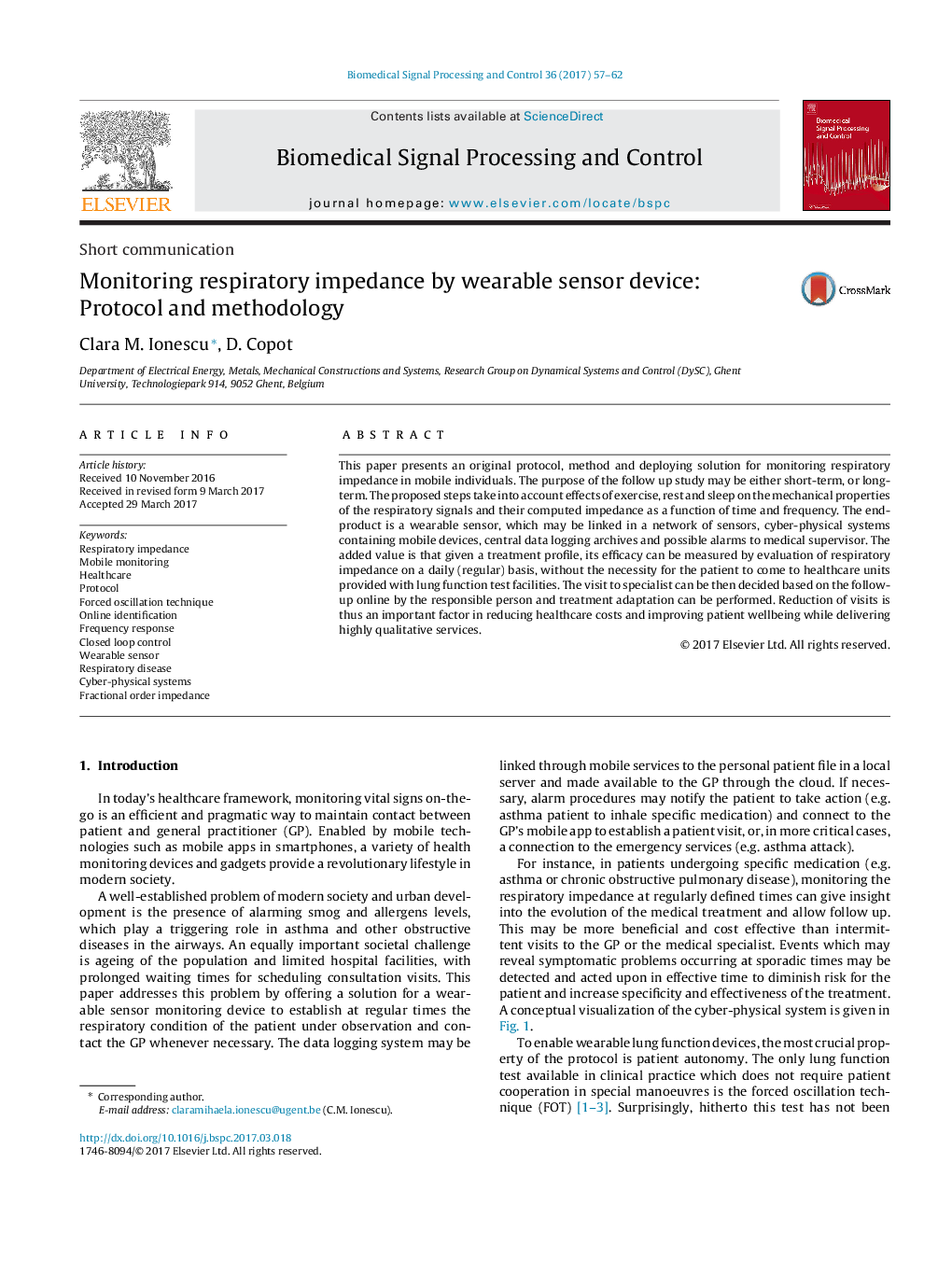| Article ID | Journal | Published Year | Pages | File Type |
|---|---|---|---|---|
| 4973534 | Biomedical Signal Processing and Control | 2017 | 6 Pages |
Abstract
This paper presents an original protocol, method and deploying solution for monitoring respiratory impedance in mobile individuals. The purpose of the follow up study may be either short-term, or long-term. The proposed steps take into account effects of exercise, rest and sleep on the mechanical properties of the respiratory signals and their computed impedance as a function of time and frequency. The end-product is a wearable sensor, which may be linked in a network of sensors, cyber-physical systems containing mobile devices, central data logging archives and possible alarms to medical supervisor. The added value is that given a treatment profile, its efficacy can be measured by evaluation of respiratory impedance on a daily (regular) basis, without the necessity for the patient to come to healthcare units provided with lung function test facilities. The visit to specialist can be then decided based on the follow-up online by the responsible person and treatment adaptation can be performed. Reduction of visits is thus an important factor in reducing healthcare costs and improving patient wellbeing while delivering highly qualitative services.
Keywords
Related Topics
Physical Sciences and Engineering
Computer Science
Signal Processing
Authors
Clara M. Ionescu, D. Copot,
